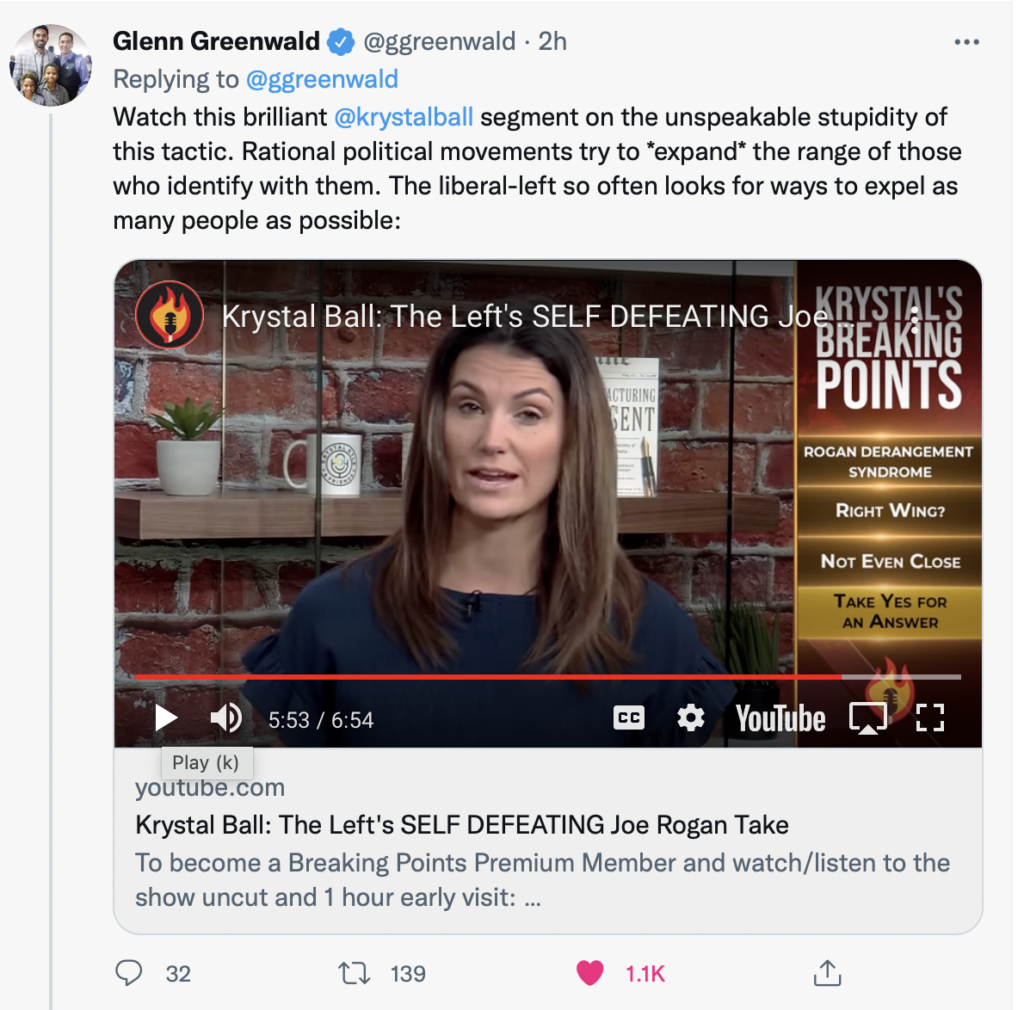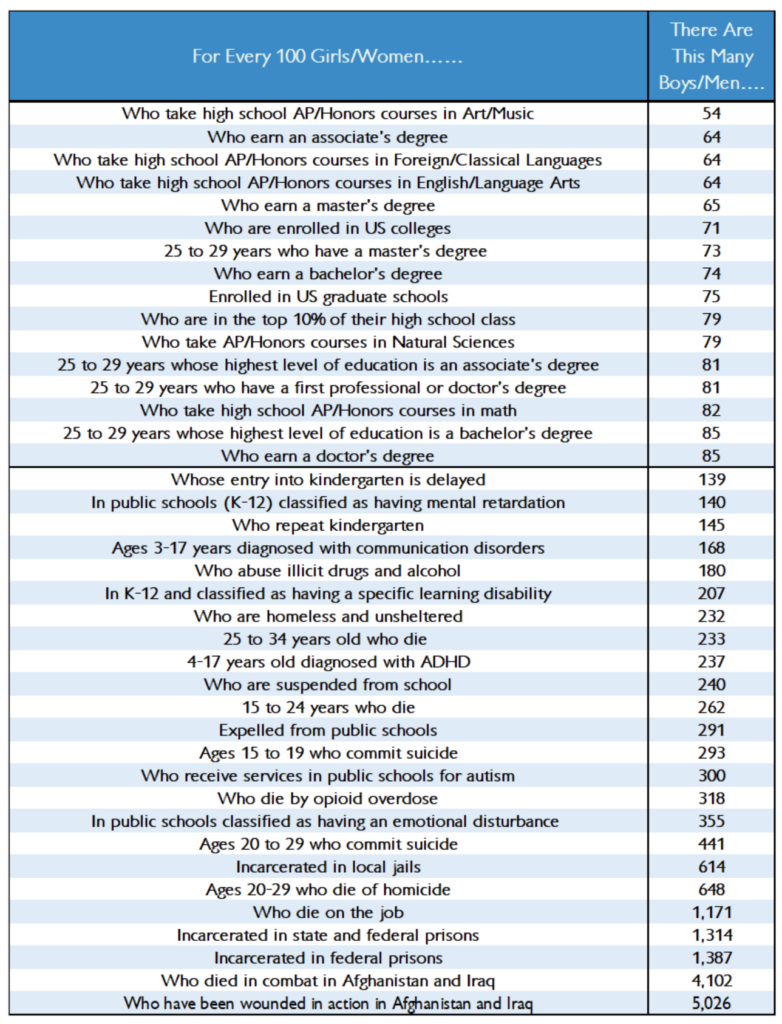The Political Left Needs to Start Judging More Wisely
I saw this Rogan interview with Krystal and Saagar. I've watched a lot of Joe Rogan for the past two years. He leans far left on most issues he discusses, but that's not good enough for most people and news media on the political left, who seek to purification, not nuanced discussion. Many of them have no idea what to do with people like Rogan, who hold heterodox opinions. They reject the idea of human complexity and they are increasibly thinking in cartoons. That is the subject of Krystal Ball's 7-minute commentary. It was spot on. I've seen this rejection of the "impure" on FB over and over. IMO, this is ruining the political left and sending many voters over to the political right, which is morally bankrupt.
My advice to people on the political left: Quit demonizing people who are not aligned with your views. Quit writing off everyone who voted differently than you. Engage openly and respectfully with your family, neighbors and friends who think differently than you. I'm an atheist, but Jesus had it right when he gave the Sermon on the Mount: "Love your enemies." I give thanks today that we don't all think alike. And I give thanks for the wisdom of John Stuart Mill. And I give thanks for the courage and soaring inspirational thoughts of Martin Luther King: Hate cannot drive out hate and we should judge each other only by the content of our character. Let's start judging each other more wisely starting today.


